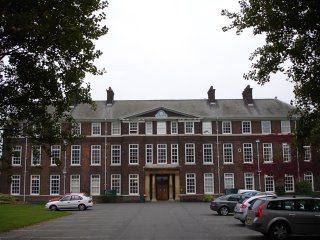Mas o que é que ele lá foi fazer?

Só para esclarecer, aqui fica o resumo do projecto...
Optimising root growth to improve water and nitrogen use efficiency in Mediterranean wheat and barley
Supervisors: Dr John Foulkes and Dr Sayed Azam-Ali
University of Nottingham, School of Biosciences, Division of Agricultural and Environmental Sciences
For wheat and barley crops grown in Mediterranean environments, the interactions between fertilizer N applications, yield and water use are imperfectly understood, but since roots are the agents of both water and nutrient uptake their activity is crucial. To be in a position to manage more effectively, an improved quantitative understanding of relationships between root traits and capture of water and nitrogen is required. The literature contains many suggestions of the type of root system likely to benefit capture during grain filling, but there are few measurements of root growth and activity.
The PhD Studentship will examine root traits and water and N uptake in controlled environment glasshouses at Nottingham University in treatments simulating a range of water and N stresses in Mediterranean durum wheat and barley. The datasets generated will be used to derive accurate quantitative relationships between rooting characters and water and N capture. These studies will indicate the likely changes needed to optimise rooting systems to improve management strategies in these strategic crops. The close control over availabilities of water and N achievable in controlled environments will be used to derive relationships between plant growth and resource use for water and N.
The PhD studentship comprises part of a Work Package conducted by University of Nottingham under EU-INCO-MED project “ Management Improvements of WUE and NUE of Mediterranean Strategic Crops (Wheat and Barley)” (WATNITMED). In a parallel and complementary study to the PhD Studentship at the field scale in Jordan (University of Jordan) the key rooting traits identified will be evaluated for their impacts under a range of water and N regimes. It is envisaged that studentship will involve travel to the Jordanian site to standardize root measurements and to discuss preliminary results with colleagues in the WATNITMED Project.





0 Comments:
Enviar um comentário
<< Home